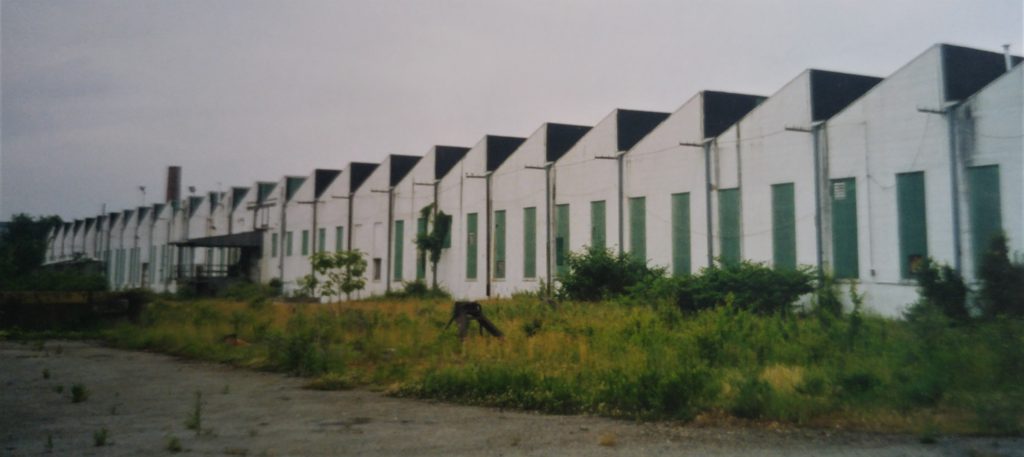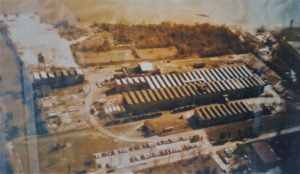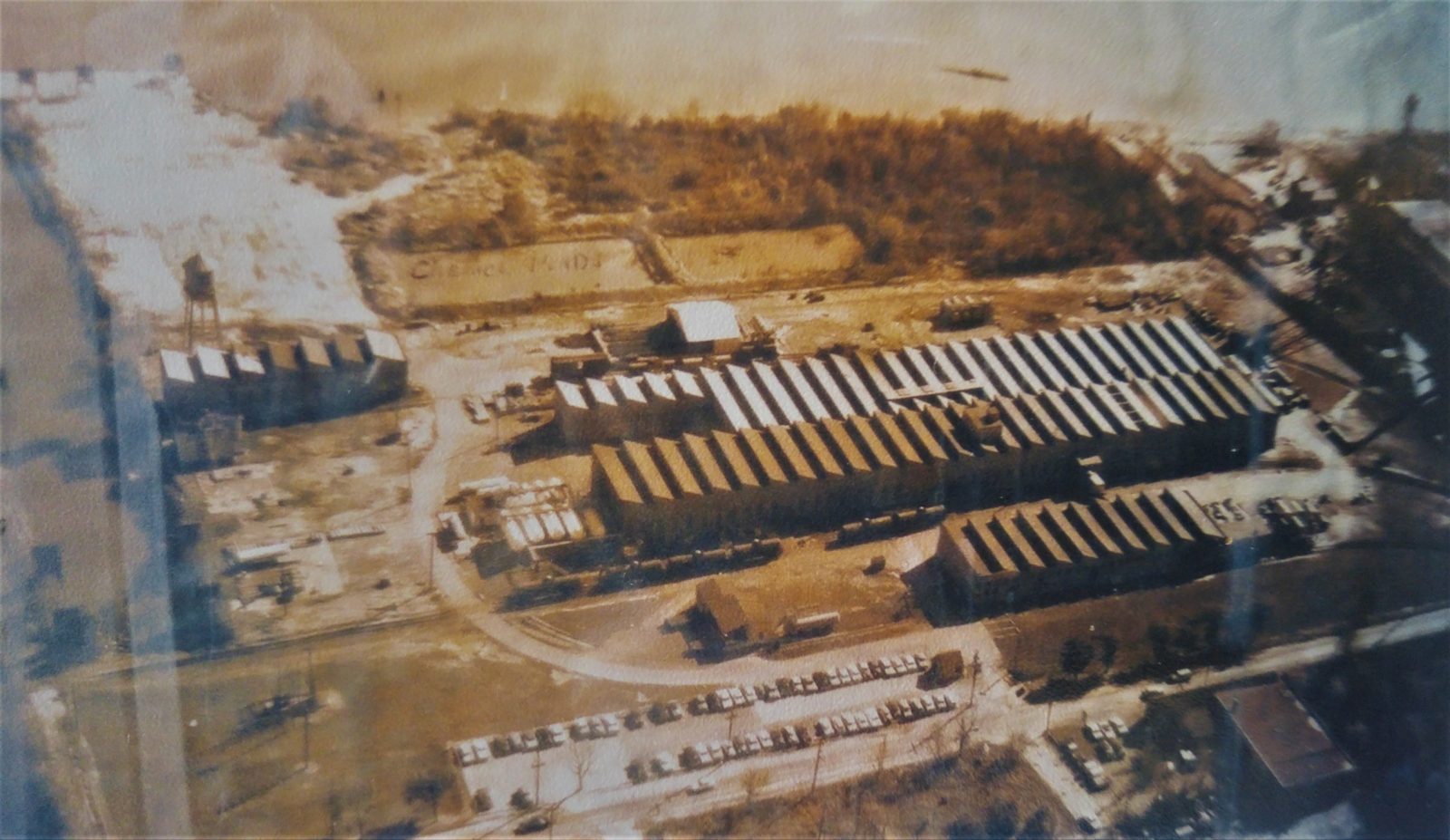At the outset of World War II, U-boat saboteurs came ashore intent on blowing up a Bensalem factory.
You don’t think of luxurious Waterside in Bensalem as Ground Zero in a plan by Adolph Hitler to unleash terror upon America. Recently, I visited the beautifully-designed community of three-story luxury townhouses on the Delaware River to see how the landscape has changed. Wow, has it! Waterside is at the heart of the township’s River Renaissance redevelopment effort along State Road.

Track back 76 years and the site was altogether different. It was a secretive factory the Third Reich was determined to destroy at the opening of World War II. Hitler deployed two U-boat submarines from occupied France to smuggle saboteurs ashore to carry out the plot. Their orders also were to initiate a wave of panic in the U.S.
The most important objective was blowing up what once stood at Waterside: The Pennsylvania Salt Manufacturing Company. Nearby residents believed the factory with its ominous saw-toothed roof design was producing poison gas for the military since fumes had killed vegetation around the site. Hitler had learned the truth however. Penn Salt was producing a rare synthetic chemical known as “cryolite”, essential in manufacturing aluminum for light-weight, durable aircraft frames. After the bombing of Pearl Harbor on Dec. 7, 1941, the chemical made possible the construction of nearly 300,000 American aircraft that eventually would key the Nazi defeat. So coveted was cryolite that the world’s only commercial deposit of the natural substance was under heavy guard in Greenland. Hitler, aware of Penn Salt’s location through German spies, put his plan in motion.


After midnight on June 13, 1942, just seven months after the bombing of Pearl Harbor that propelled the United States into the war, German sub U-202 launched two inflatable rubber boats containing four saboteurs off the coast of Long Island. The men rowed ashore near East Hampton. A few days later, U-584 smuggled four others in two boats onto a remote beach below Jacksonville, Fla.

American expatriate George John Dasch, 39, headed the first team, ordered to destroy hydroelectric plants at Niagara Falls, locks on the Ohio River, aluminum smelters in Illinois, Tennessee and New York, and especially the Penn Salt factory. The second team’s mission was to sabotage the water supply of New York City, blow up the Pennsylvania Railroad station in Newark, N.J., plus Altoona’s Horseshoe Bend, an important East-West link in the nation’s railroad network. Both teams had orders to plant bombs in major railroad stations and in Jewish-owned department stores.
Each team carried ashore small waterproof crates loaded with dynamite, fuses, timing devices, wire and sulfuric acid. The crates were to be buried immediately for retrieval later. The teams also had nearly $200,000 in U.S. currency for living expenses, travel, supplies and if needed, bribes. In addition, the leaders had handkerchiefs with the names and addresses of American sympathizers, all written in invisible ink.
After landing on Long Island, Dasch climbed over a seaside dune to reconnoiter the site. Through the fog he spied a young U.S. Coast Guardsman waving a flashlight. With a glib American accent, Dasch intercepted him and announced he and some companions were stranded fishermen. The guardsman suggested they take refuge in the Coast Guard station a half mile away. Dasch declined, saying they had no IDs nor fishing permits. That made the sentry suspicious. He became increasingly alarmed when Ernest Burger, one of saboteurs, appeared at the top of the dune and shouted something in German. Dasch shouted back, “Shut up!” He then threatened to kill the guardsman but offered a bribe for his silence. The sentry accepted the cash, then split for the Coast Guard station where he revealed what happened.
Guardsmen raced to the site. By then the enemy agents had vanished into the night, heading for New York. From clues on the beach, the Coast Guard recovered the buried munitions and notified the FBI. The incident unnerved Dasch and Burger who believed authorities would now be after them in a nationwide hunt. To curry favor to avoid execution, Dasch surrendered to the FBI and disclosed the names, missions and contacts of the saboteurs. In short order, all were nabbed before any subversive action could be taken.
In the end, Penn Salt remained unaffected throughout the war. An FBI office opened nearby and security was strengthened. Six of the eight Germans were convicted and electrocuted in the District Jail in Washington on Aug. 8, 1942. For his cooperation, Burger received a life sentence at hard labor. Dasch got a 30-year sentence. In 1948, both were deported. Penn Salt closed after the war. The 26-acre property lay fallow for decades before Montgomery County developer Mignatti Companies purchased it in 2006 with $6 million in federal, state and county low-interest loans to clean up chemical contamination and prepare the site for residential and commercial construction: Today’s Waterside.
Sources include “Near Incident at Cornwells Height” by Richard A. Cylinder of the Bucks County Planning Commission published in 2005 on file at the Bensalem Historical Society; the FBI’s official account of the incident found on line at www.fbi.gov/history/famous-cases/nazi-saboteurs-and-george-dasch; and the most in-depth account in “German Saboteurs’ Failed Invasion” by Harvey Ardman published on Aug. 8, 2016 in World War II Magazine.

